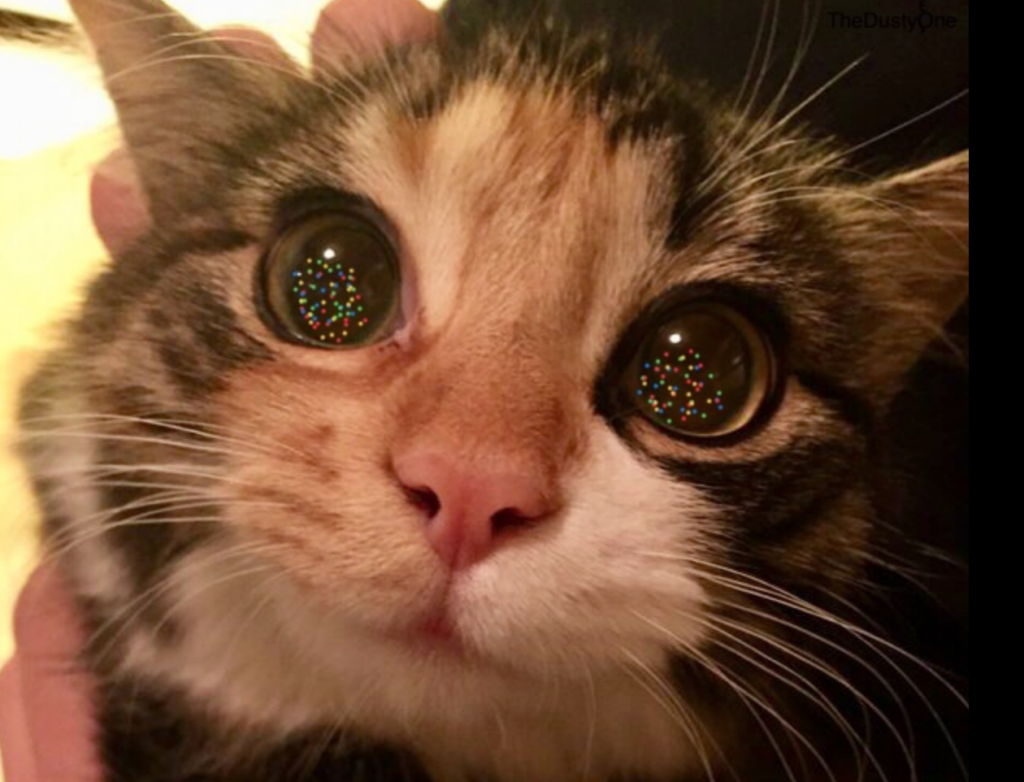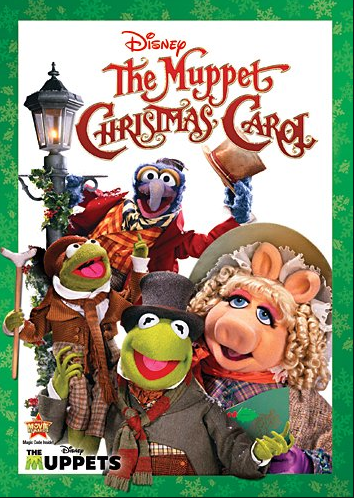Why are there certain stories we just can’t get enough of? Why do some stories fade away while others become staples for every generation? Charles Dickens’ A Christmas Carol has been made into all kinds of movies, plays, cartoons, musicals and there are countless variations of Dickens’ original story: A grumpy old miser who is transformed by the power of love.
Dickens used symbol, theme & allegory to create enduring stories….
Full disclosure. A week ago, I slipped and cracked my head open on the corner of an end-table (Did I mention I can be clumsy?) For the record, I am fine *left eye twitches*, just a big banged up and sore.
Anyway, since I couldn’t do much with a concussion, I sat and listened to the audiobook of Charles Dickens’ A Christmas Carol, which I strongly recommend.
Today, we are going to explore the many brilliant layers of a very simple and timeless tale and maybe even extract some lessons to make our own writing even better.
One of my all-time favorite movies for the holidays is The Muppets Christmas Carol. I believe I’ve seen this movie a few hundred thousand times.
I’ve worn out three VHS tapes and at least three DVDs. I play the movie over and over, mainly because, well, duh, MUPPETS! I drive my husband nuts playing this movie over and over…and over.
***And, for the record, Henson Productions did a superlative job of sticking to the original story.
Christmas? I’m worse than a three-year-old.
Muppets aside, I also can’t get enough of the music. I love the story of A Christmas Carol no matter how many times I see it, no matter how many renditions, and I am certainly not alone.
Charles Dickens’ story of a redeemed miser is a staple for holiday celebrations around the world and across the generations.
This story is virtually synonymous with “Christmas,” but why is it such a powerful story? Why has it spoken so deeply to so many? Why is it a story that never grows old? Today, I want to talk about a couple of the elements that speak to me, because they rest at the heart of great writing.
Christmas Carol & A Little Background

A Christmas Carol is a beautiful story, but I find it’s true beauty when it’s explained in the Christian context that inspired it. Many years ago, Toddler Spawn was watching Bubble Guppies and they tried (dismally) to tell the same story inserting “holiday” so as not to offend anyone, I presume.
Yet, the story fell flat.
The PC had ruined the beauty of this tale and made it more of a lesson about embracing shallow commercialism once a year than a story of love’s power to redeem the irredeemable.
Thus, this post will use scriptural and religious references to explain why I believe this story is so moving and timeless.
Charles Dickens was a Christian and his beliefs are wound all through the story. To remain true to the literary intent, this post will explore the story in light of that reality.
Instead of Dickens preaching his beliefs, he created the tale of Ebenezer Scrooge. Then, through theme, symbols, motifs and allegory drove home very powerful lessons I believe we all can embrace regardless of our spiritual beliefs.
Christmas & The Power of Names

Naming characters can be vital. Great writers use the power of parsimony. Each element should serve as many purposes as possible.
A name is more than a name. It has the power to be a story within a story.
I recall the moment I was first introduced to what would become my favorite hymn, Come Thou Fount of Many Blessings. One verse stood out:
Here I raise my Ebenezer
Here by Thy great help I’ve come
And I hope, by Thy good pleasure
Safely to arrive at home.
Ebenezer? Raise an Ebenezer? I needed to know more.
Ebenezer is actually (in Hebrew) Even Ha’Ezer, which literally means stone of help or monument to God’s glory and is referenced in the book of Samuel.
Thus, when Dickens chose a name for his protagonist, he chose the perfect name for the redeemed sinner. What is a better testament to a God of grace, than the hardened heart melted by the power of love? The current climate of political correctness aside, A Christmas Carol is most definitively a Christian story and the theme is reminiscent of Proverbs 25:22:
If your enemy is hungry, give him bread to eat
and if he is thirsty give him water to drink
for you will heap burning coals on his head
and the Lord will reward you.
Very often this verse is misunderstood.

“Yeah! BURN ‘EM! THAT’LL TEACH THEM TO MESS WITH ME! COALS! BURN BABY BUUUURN!” Yet, if one looks to the ancient Hebrew, the heaping burning coals is literally the holy fire of LOVE that melts the hardened heart so it can be remade (think of melting a weapon of war to remake it into something of beauty or a tool for healing or farming).
The path to redemption is love, for only love holds the power to redeem those who have committed grave wrongdoings. Only love can repair what’s been broken and “remake” it into something entirely new.
The Christian story is a story of love, of redemption, of second chances and not because one has earned it or deserved it.
Scrooge is a dreadful man, yet as the story unfolds, not only does Scrooge’s heart begin to melt as he’s faced with the truth of who he is, but our hearts melt toward Scrooge as we travel through the past, present and future and see what has created such a embittered, cruel person. We empathize and start to have compassion and love the unlovely. We see him less as a monster and more as a person with deep, unhealed wounds.
Scrooge has done nothing to earn redemption, but his redemption is precisely why we cheer at the end.

The spectral visits serve to show Scrooge the truth, which again is reminiscent of scripture; and then you will know the truth and it is the truth that will set you free (John 8:32). Scrooge cannot change what he cannot see. The three ghosts come to reveal what he’s failed to see on his own.
Repentance is not the mumbled and counterfeit “Sorry.” Rather, it is finally seeing the truth of who we are and what wrong we’ve done. It’s a decision to make things right and turn away from wrong.
By the end of the story, Ebenezer is authentically repentant. He’s a changed person determined to share the love and grace that was freely given to him when he didn’t deserve it.
Again, what a wonderful testament to God’s love. What a lovely “Ebenezer.”
Jacob Marley is another symbolic name. Jacob Marley is the name of Scrooge’s old business partner, and it is he who intervenes to try and redeem his old friend before Ebenezer is sentenced to share Marley’s fate. The name “Jacob” actually means “thief and liar.”
In the Bible, Jacob stole his brother Esau’s blessing, then manipulated, lied, stole and connived until it came back to bite him multiple times (Jacob later wrestled with an angel until he could be given a new name, Israel and eventually became the father of a nation).
What better name to give someone sentenced to roam as a specter for eternity carrying the weight of his ill deeds than a name (Jacob) that literally means thief and liar?
Christmas & the Power of Symbol

When the ghost of Jacob Marley visits Scrooge:
The chain he drew about his waist was clasped about his middle. It was long and wound about him like a tail; and it was made (for Scrooge observed it closely) of cash-boxes, keys, padlocks, ledgers, deeds, and heavy purses wrought in steel…
Why cash-boxes? Or legal deeds? Why purses?
In life Jacob was a money-lender. He was ruthless in his dealings and never forgave a debt. Yet, Matthew 6:12 (part of The Lord’s Prayer) reads: Forgive us our debts as we have also forgiven our debtors.
Jacob forged his chains in life. He refused to show mercy, compassion, or kindness. He was ruthless and legalistic, thus he has sealed his fate. God has promised to forgive us the same way we forgive others, which is why the scripture pleads for grace, compassion and mercy. Also, forgiveness of debts is the heart of what Christmas is about, for unto us a child is born.
Christians believe God sent His only begotten son (God in the form of Man) to pay a debt we cannot hope to pay. God loves us as His children, and our actions have left us hopelessly out of our depth, incapable of paying our debts.
Yet, Love cancels the debt.

Christ’s last words on the cross, “It is finished” uses the word tetelestai.
The word tetelestai was also written on business documents or receipts in New Testament times to show indicating that a bill had been paid in full.
Bible.org
Jacob Marley turned away from the grace freely offered, so now he wanders, burdened forever by the debts he cannot pay.
Jacob now finds opportunity to warn Scrooge of the chains he is now forging with his actions (and inaction), chains that are longer and heavier than even his. The only way for Scrooge to free himself is to learn to value himself and his fellow human beings.
Smaller Truths Reveal Larger Truths

Dickens makes it a point to show us that Scrooge is a miser. Scrooge shows no mercy, has no warmth, shares none of his wealth…with anyone, including himself. Scrooge is a very wealthy man, yet he wears old clothes, lights no coals for warmth because coal costs money. His home is threadbare and his food measly and meager.
The full story of redemption is that Scrooge not only sees his fellow man differently—worthy of compassion, love and generosity—but in changing how he views his fellow man, his view of himself changes (and heals) as well.
The three spirits not only heal Scrooge’s relationship with his Maker, but with himself and others. Scrooge, for the first time, becomes part of the human experience, no longer content to be “solitary as an oyster.”
Christmas & the POWER of WORDS
This point should resonate particularly with writers. There is a REASON the Ghost of Christmas Future refuses to speak. Words have creative power. We authors should grasp this better than anyone. We use combinations of 26 letters to create worlds, people, places, technology, other dimensions, religions, races, and on and on.
SPELLing, anyone?
If one looks at the first chapters of Genesis, God created the heavens and the earth and all living things by speaking. “And God said…”
He only breathed life into humans. God spoke everything else into existence. Throughout the Old and New Testament, there are countless scriptures referencing the power of the tongue, of words, and warning they carry both the power of life and death.
This idea carries into Ebenezer’s story because, by the time he has this final visit, he still has choice over what his future will be. The specter cannot speak because words would cast Scrooge’s future and thus render it unable to be changed. Scrooge’s fate isn’t for the Spirit of Christmas Future to decide; it is up to Scrooge.
Happy Ending

Scrooge deserves the death he’s shown by the Spirit of Christmas Future. He deserves to die alone with those “closest” casting lots for his garments. This is what he has sown with his lifetime of greed, hate and spite.
Yet, he is pardoned.
Scrooge is the resurrected heart, the dead brought to life. When God promises “everlasting life” it isn’t a promise that we get to float around on a cloud in Heaven after we die. Rather, it’s a promise that life begins at the moment we decide to accept His divine mercy and love.
Scrooge has been “alive” but not “living.” He was existing. When he is redeemed, given a new chance, he decides to change. Out of gratitude for the mercy he is given, he reaches out to give what he’s been given. LOVE, MERCY, GENEROSITY.
Christmas & Restoration

Sure, God could have rained down a miracle that healed Tiny Tim and landed Bob Cratchit a better job with a better boss, but Dickens saw God as a partner with humanity. He saw God in the business of finding and changing the lost, miserable and broken. Instead of giving the miracle to Cratchit and his family, God, instead, gives it to Scrooge, the least deserving of a miracle.
Why?
Because God is about working through people. Many of His miracles come from ordinary people performing extraordinary acts of kindness and sacrifice. By changing Scrooge, God could create a man who would become a benefactor. Scrooge got a miracle only to become a miracle for those around him.
If you read the book, you see a lot of why Scrooge is “angry.” He’s actually never dealt with deep losses and he failed to grieve. When his experiences with the three spirits remove the scales from his eyes, he then can heal that grief and ipso facto, let go of his anger.
Cratchit now has a kind and generous boss, the community now had a passionate philanthropist, and Tiny Tim lives. The family thrives because one man’s heart could be melted.
It is no great feat to love the lovely. If you love only those who love you, what reward is there for that? Even corrupt tax collectors do that much (Matthew 5:46). This story is so powerful namely because it shows that every human has value and is worth an opportunity for redemption.
Christmas is About Love

God is in the business of changing hearts, and Dickens wanted to show that. A Christmas Carol is a masterful exploration of the true nature of Christianity, what it should be, what it was meant to be. Love. Above all.
It is also a brilliant explication of what the Christmas season is really all about. It isn’t the commercial nonsense, the “stuff” the parties and gifts. While those can be great, they are empty without love as the driving force behind them.
Christmas can be a very hard time of year for many people, myself included. So maybe we can take the lessons from “A Christmas Carol” to remember to give ourselves grace, love, compassion, and forgiveness. For when we allow these INTO US, all these can then flow through and from us as well.
Grieve what we’ve lost, then embrace and be grateful for what we have. Joy is a decision and so is love, which can be a super tough thing to remember.
Happy holidays and Merry Christmas! Sending love to all of you who keep me going day after day and year after year.
I LOVE Hearing From YOU!
Which is your favorite version of A Christmas Carol? What do you love about this story? What is your favorite part? Do you now see the story in a different light than previously? I find it incredible how much Dickens packed into such a short story.
*sings Marley & Marley*
What are other Christmas movies that resonate with you and why? Can you see the symbols and themes that make those stories so beloved?









21 comments
Skip to comment form
Sorry to hear about your head injury. I have had three concussions, knocked myself out entirely with two of them. My memory has suffered for sure, but I still soldier on writing by having to read back a lot to the beginning of my tale. Made it a lot harder. I hope you have no long-term repercussions. Also, kinda funny, but my email cut the subject line off as Writing Lessons from “A Chr… For some reason, I thought it was going to say Writing Lessons from “A Christmas Bunker” like you were holed up somewhere, in a safe room perhaps. I don’t know if that says more about me or you from all your posts. Anyway, this was a great post. Take care and Merry Christmas!
I gotta say my new favorite version is Spirited on Apple TV. Super funny and ALL HEART! Merry Christmas, Kristen!
Sorry you whacked your head. Timely and interesting post. When I was young, one of the few channels available to us showed a movie M-F mornings, I don’t recall the hosts name. Every Christmas vacation during my early elementary school years I can remember watching a version of “A Christmas Carol.” Out of curiosity, I searched the net trying to figure out which version. It was either the 1938 “A Christmas Carol” or 1951 “Scrooge.” The chain rattling Marley always gave me the creeps. Have a Merry Christmas, Kristen.
Thank you for this insightful illumination of A Christmas Carol. I’m so sorry you hurt yourself. Please stop doing that. 🙂 But I’m glad you were able to distract your poor concussed brain with the audio book of this amazing story. I haven’t heard it but will certainly do so. My favorite version is the musical “Scrooge,” but I love the Muppets version as well because … Muppets! 🙂 Excuse me now, but I’m going to reread your article. A lot to take in! Have a blessed Christmas/holiday.
What a beautiful and powerful post! Yes, I see the story in a whole new way. You summed up the heart of Christmas beautifully.
I’m so sorry you cracked your head open! *cringe* I’m praying for your quick recovery. Thank you for sharing your heart with us even though you’re in pain.
May you and your family have a wonderful Christmas together!
Author
Thanks! I appreciate the feedback and that you enjoyed the post. I saw the story in a whole new way, too when I sat down to write the post and all the references I kept adding. Felt like I could have written a small BOOK on this, LOL.
As for the head….
I did a doozy on myself. I just went to step out of bed and slipped with both feet. Thankfully (???) the back of my arm took most of my weight in the fall against the table, so it is all black and blue. BUT I did catch the corner with the back of my head. I have a good 3-4 inch gash and spent all week scrubbing blood out of every…towel…we…own.
BUT, I come from a family of medical people, so I knew how to instruct Hubby how to tend the wound and the signs to look for that I had a serious brain injury (pupil dilation, slurring words, etc.). I’d say I had a Level One concussion which is just a lot of rest and no quick movements. Spent most of the week just being still with packs of ice on my head.
The cut is healing pretty well. I can tell because it ITCHES. BUT, it could have been worse, so thank GOD for that.
Sorry about your head, hope it’s healing and left no lasting damage 🙁
I love the Muppets Christmas Carol, because … yeah … Muppets. I’m old enough to remember the weekly Muppet Show. As for another favourite movie, I’m going to go all predictable and say It’s a Wonderful Life, which reminds us how much influence each of us has on the world around us.
Author
That is another really lovely story. Might be worth a post. Would be a fabulous story to explore on a deeper level.
Of all your posts, this is my favorite. Great insight and so well written.
Sorry about your head. I hope you feel better.
Well said!
When I was a child, I looked forward to watching Mr. McGoo’s A Christmas Carol. I still remember the compassion that stirred within me for that poor, sad man who valued wealth above everything else.
A while back I got hold of a DVD of that program to share with my family. (I am a great-grandma now.) I was sad that it didn’t hold the interest I have always had in this program. Maybe because animation is so much more sophisticated today than it was back then?
I love the George C. Scott version of “A Christmas Carol,” but interestingly, I also really love the very dark and trigger-warning-filled FX version, which takes liberties with the story but really digs into the darkness in a human soul and shows how much work it is to heal. I read the book every year and find something new in it, which is a testament to why it’s a classic.
As an author, I also adore “The Man Who Invented Christmas.” The very first scene is priceless, and it only gets better from there. ?
Author
I don’t think I have seen that. Still recovering so might look that up. Thank you!
Brilliant, as usual. Thank you!
This is was just beautiful, timely and just what I needed today. I will never look at the Christmas Carol the same way again. Thank you for sharing this with the world. And I do hope you’re feeling better. We need more of your blogs in the new year!
Kristen, thanks so much for such a lovely post that went far beyond simply being about The Christmas Carol. Hope you feel better soon. Merry Christmas!
Author
Thank you (((HUGS))). Merry Christmas!
My wife whacks her head every time she has a bath. I don’t know how she does it, but she always has to wrap a towel around her noggin when she gets out of the tub.
Terrific post, Mrs Lamb. Merry Christmas and “God bless us, Every one!.
Hope you feel better soon. This was a wonderful read – thank you so much!! You know the thing I love most about A Christmas Carol is the history behind it. I read a number of years ago now that at the time it was written Christmas had faded to almost irrelevance. The industrial revolution and Victorian sensibilities had sidelined the holiday and only through Dickens’ writing did it get revived and grow to prominence as the holiday we all know today 🙂
A wonderful article, Kristen! I read ‘A Christmas Carol’ for the first time this February *laughs guiltily*. Like Eldon Farrell, my favourite part of the history is the almost singlehanded revival of Christmas in the Victorian era that resulted from Dickens’ work.
Author
I know, That is incredible isn’t it?
Thank you for this powerful post. The Muppet version is one of my favorites, as well, and now I will view it with new insight into the author’s (Dickens) intention. In these times of politicizing everything (including religion) it’s wonderful to be reminded of the central message.